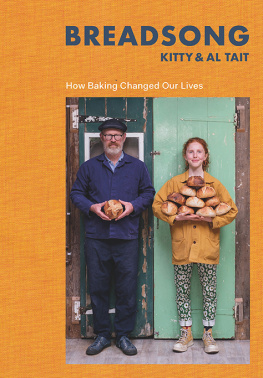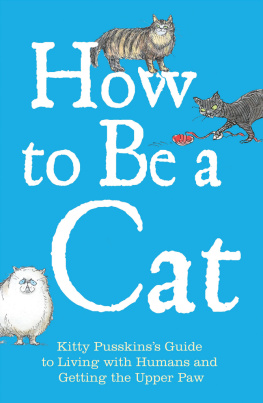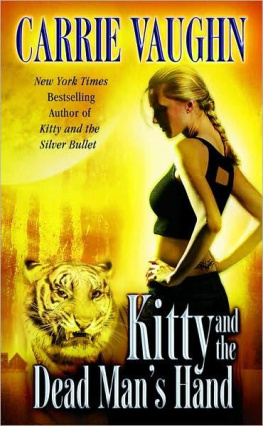
For Albert and Aggie. And for Katie.
KITTY The very first post I ever put on my Instagram says Breadsong. Its a short film of a row of loaves crackling and hissing as their crusts expand after theyve just come out of the oven. If you lean in closely to loaves on the cooling rack being careful not to singe your ear it can sound like distant applause. Thats the magic of bread.
AL The story of the Orange Bakery has been chronicled by films and images taken by Kitty that simply capture the joy of baking. I had no idea where we were going when Kitty started to bake bread, but I knew that I had to be alongside her because it was the only thing that made any sense.
This book is about how my then-14-year-old daughter and I came to open a bakery. The people who helped us and the town that made it possible. The drawings are mine, the recipes are mainly Kittys, but the story is ours.

THE TWO QUESTIONS people often ask are when and why. Even now, Im not sure that I can answer either. The when, I suppose, seems easier because there are a few concrete markers. My parents golden wedding anniversary party in early spring 2018 stands out. It was the first time in a while that my side of the family had all been together. In the sometimes complicated, nuanced family dynamic Kitty had always occupied an enviously simple slot; she was the funny, chatty one with freckles and red hair who always wore odd socks and made everyone laugh. The change in her had been so gradual that Katie, my wife, and I had failed to realize just how much Kitty had faded into a diminished version of herself. For the wider family, who hadnt seen her for a while, it was stark. Kitty was so subdued, distracted, pale and sad looking that both my mum and sister rang us afterward to check whether she was okay.
Over the weeks that followed, we tried everything to work out what was happening with our youngest child. We wrapped her up as tightly as we could in family. We talked and listened. But the more we tried, the further she seemed to slip away from us until finally, in desperation, Katie took her to see our GP. As Katie asked for help, Kitty sat there mute and found it impossible to explain what was happening to her. The doctor was worried and said he would refer us on for further support. We were at least relieved that we had put something in motion and Kit seemed reassured that she was going to get help. For a while, it all felt better but like the Phoney War, we had no idea what was to come.
We slunk into our first appointment at the Child and Adolescent Mental Health Services (CAMHS) in Oxford, slightly embarrassed we were wasting their valuable time. However, the trip was a trigger for Kitty. After speaking to the psychologist about how she was really feeling, she could no longer pretend to any vestige of normality. The wafer-thin veneer of putting on a brave face cracked overnight and Kitty became swallowed up by despair and fear. Anxiety gripped her, often out of the blue, and she became unable to cope with even leaving the house. By June, attending school was an impossibility and receded in importance as Kitty was simply struggling to wake up and get dressed each day.
Tracing back, we realized we had noticed changes over some time, for months maybe. While we both still wish that we had acted on these changes sooner, even now we can see why we didnt. Having been a child for a long time, adolescence was starting to rush in. The self-consciousness that Kitty had been blissfully free from now hung heavy. But we had been there before with her older siblings. Parental amnesia blocks out many of the more stressful moments, but we had vague memories that life was pretty challenging for Albert and Aggie at 14 too.
We thought maybe self-conscious teen was a cruel badge that you just had to wear for a while. There were still lots of pluses for Kit she was popular, doing well at school and we still had her in the box of our happy child. She was the one who literally seemed to bounce through life.
With her huge smile and outrageous laugh, Kitty would bounce into rooms and bounce into our bed each morning. So, shed stopped bouncing a bit. We thought it would come back.
There was something else that stopped us doing anything about Kitty. That one is a bit harder to explain. We didnt act on our instincts because, as is so often the case, life was complicated. We were juggling the double vortex of A levels with Aggie and GCSEs with Albert and all the baggage that comes with that. Katie was working flat out at her job with the cancer charity Maggies, beetling down the M40 into London at least four times a week. And I was coming to a crossroads with my career, hoping to step up both the dyslexic work at Oxford University and my role for Now Teach, a charity to get older people into teaching. Id had a few years of working part time, earning less but being able to be there for the children and keep the house/dogs/schoolwork vaguely ticking over while Katies workload increased. Financially and personally, we needed to work out what came next. So there was this stuff just going on, all vaguely moving forward in the right direction. Its not that we chose to ignore what was happening right in front of us with Kit; naively, we were waiting for a little bit of space to open up to address it. But soon we had no option.
The why is almost impossible to answer and is more for Kitty to say. Its like a pixelated image that takes a while to sharpen into focus and there are details that will probably only become clear a long time in the future. The why is what everyone wants to get to the bottom of, as if finding the root of the problem means you can change things at the source or somehow remove it through the power of logic. Surely then everything will be fine.
Everyone wanted to know what the trigger was. There was no single obvious cause, although probably a thousand small ones. Maybe there was some simple DNA that made the situation unavoidable. Social media, for once, wasnt the villain of the piece. Kitty had good friends and there was no sign of bullying. She worked hard at school, our local state secondary that wasnt known for being pressurized academically. Whatever the reason, something short-circuited. It was a bit like the scene in Apollo 13 where a routine flick of the switch suddenly snowballs into a full-blown disaster.
In the space of a few weeks our lives changed completely. Its very hard to capture what real despair looks like.
Its not exaggerated sadness, rather its when someone gives up on all the simplest functions getting up, eating, washing, even sleeping and its terrifying to watch. Kitty couldnt see the reason for anything and so one of us needed to be with her the entire time, day and night, to reassure her she was safe. Kittys mind was so fractured that it was almost impossible to use reason with her. It was upsetting and scary for everyone, but for Kitty most of all. And the weirdest thing was that real life continued to go on around us. People walked down our street, with their dogs on leads and their children in buggies, all enjoying the hot summer sun while behind our front door we struggled to keep Kitty from going under entirely. Katie and I would get to the end of every day and ask each other, How did this happen? After a while we stopped bothering with the big













